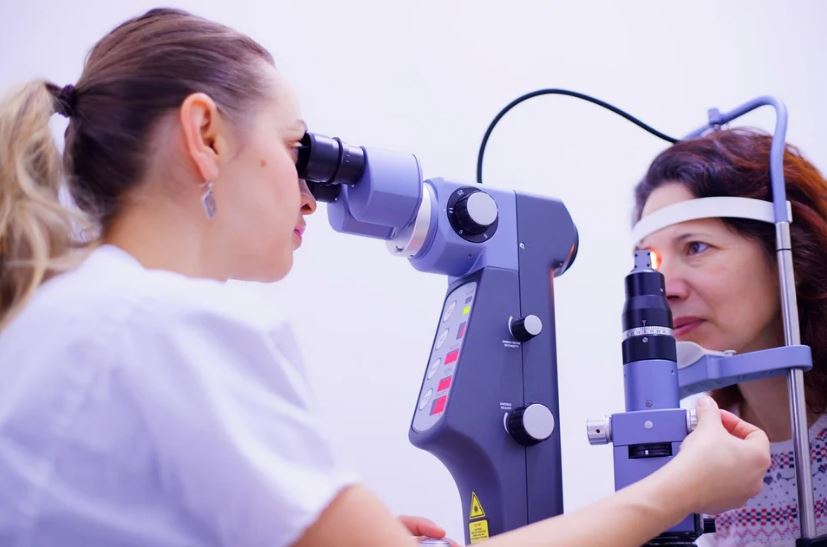The only way to get rid of eyeglasses is via corrective eye surgery. However, certain natural remedies, such as mishiri, fennel, and almonds, can help address presbyopia, hyperopia, and near-sightedness.
Regular eye exercises may also help, but neither will completely replace the need for eyeglasses. On the other hand, LASIK eye surgery can permanently fix a patient’s eyes to enjoy optimal vision without wearing eyeglasses or contacts ever again.
How to Improve Your Eye Vision Naturally?
You need to get 7 to 8 hours of restful sleep every day. Avoid stress and eye strain whenever possible. Take breaks every hour to rest your eyes and perform eye exercises. Wear sunglasses when exposed to intense light outdoors.
Drink 6 to 8 glasses of water every day, and get tested at least once every two years at an eye clinic. Ensure that you obtain all of the necessary minerals and vitamins to ensure proper health. Eating leafy greens can also help improve your vision naturally.
How to Get Rid of Glasses Permanently?
Eye surgery is the only way. The good news is there are many different options available.
LASIK involves reshaping the corneal tissue so that light can properly focus into the patient’s eye to reach their cornea. The surgeon makes a tiny flap in the outer corneal layer. The flap is used as a gateway to access the tissue found underneath and reshape it for optimal vision.
LASIK is effective in treating astigmatism, farsightedness, and nearsightedness. PRK, short for Photorefractive keratectomy, involves reshaping the cornea using a state-of-the-art laser.
PRK may be effective in treating mild astigmatism, farsightedness, and nearsightedness. RLE, or Reflective Lens Exchange, is specifically designed to rectify cataracts. The corneal edge is targeted to extract the eye lens gently. The natural lens is then replaced by a plastic or silicone lens that will properly refract light so the patient can see better.
RLE can be used to treat dry eyes, nearsightedness, farsightedness, and thin corneas. It is not very effective at treating astigmatism, however. ICL or an Implantable Contact Lens can be an effective treatment for patients who are simply too nearsighted for LASIK or PRK to be effective.
A minute incision is made in the corneal edge of the patient so that the surgeon can attach a tiny implant to the patient’s iris. The implant will be situated behind the pupil. It should be noted that the natural lens is not affected during ICL. Instead, it is left in place.
ReLEx SMILE involves making a small lens inside the patient’s cornea using a femtosecond laser. The cornea is left in an intact state during the procedure. The surgeon makes a very small access point to extract the small lens from the corneal interior.
The outer corneal layer remains unaffected. No flap incision is made during the operation. The surgery can help treat patients with severe myopia. It is minimally invasive and is completed in just one step.
Which Laser Surgery Option is the Best to Correct Vision Permanently?
LASIK is designed to rectify refractive errors that affect the cornea. It can be used to treat astigmatism, farsightedness, or nearsightedness. It cannot treat glaucoma or lazy eye. To qualify for LASIK, your prescription needs to be stable.
You also need to be over 18, and your cornea needs to be sufficiently thick. You will also be disqualified if you are currently nursing or pregnant or have advanced diabetes.
A recent study found that LASIK has a 97% success rate. Many patients enjoy perfect 20/20 vision permanently after LASIK, which allows them to live without glasses or contacts for the rest of their life.
When it comes to the chance of complications, laser eye surgery’s long-term side effects are significantly less than some other vision correction solutions. Most LASIK side effects aren’t long-term problems, and they typically improve with time as the corneas heal. Additionally, because laser eye surgery candidates face a rigorous screening process, only those whose eyes will respond well to laser eye surgery are offered the treatment.
If you do not wish to undergo LASIK eye surgery or are not a good candidate, your surgeon may discuss other options, such as ReLEx SMILE, ICL, RLE, or PRK. The good news is the benefits of LASIK surgery are myriad, and most candidates will qualify.
Eye Health Matters
LASIK eye surgery may allow you to enjoy perfect vision without the need for prescription contact lenses or eyeglasses. You will save thousands over your lifetime by no longer needing to buy new eyewear every few years.
Your self-esteem and confidence will also improve, and LASIK is not only safe and effective but also affordable and fast-acting. Most patients will notice drastic improvements in a few days, and LASIK is also minimally invasive.
You will feel no pain during or after the procedure and will be able to return to work in just a few days unless your surgeon advises against it. The entire process is completed in just one session, and most patients will leave the clinic within an hour of their arrival.
Sources:
How To Decide If LASIK Eye Surgery Is Right For You (webmd.com)
ReLEx® SMILE® Surgery | All you need to know | OCL Vision
Types of Corrective Eye Surgery – Vistar Eye Center
How To Improve Your Eye Vision Without Glasses | OrthoK.nyc
How to Get Rid of Glasses or Contact Lenses | Centre For Sight

